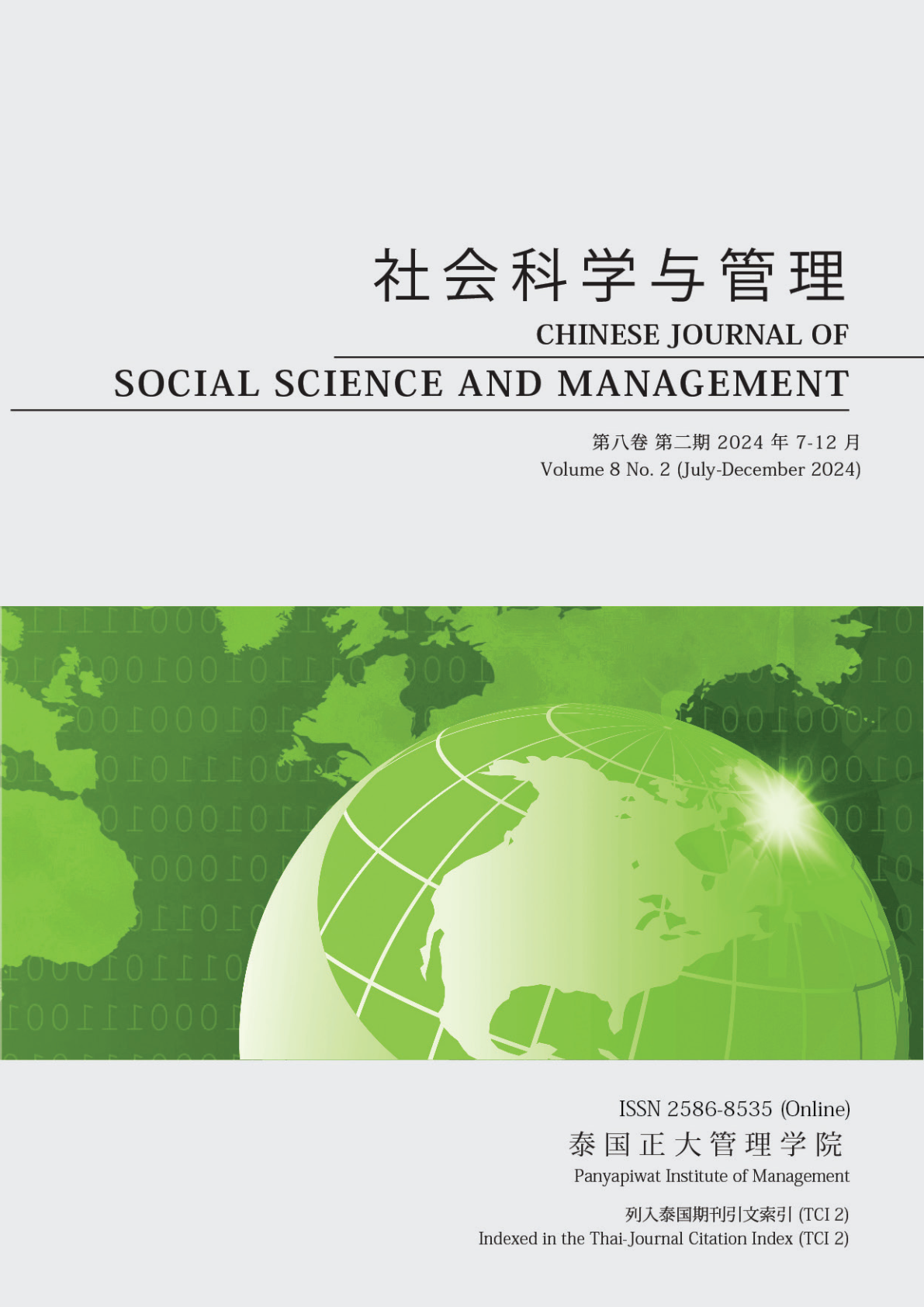THE IMPACT MECHANISM OF UNCIVILIZED WORKPLACE BEHAVIORS ON EMPLOYEES’ WORK-FAMILY CONFLICTS FROM CONSERVATION OF RESOURCES THEORY PERSPECTIVE
Main Article Content
Abstract
In today’s era when Chinese enterprises have begun to pursue internal work efficiency, uncivilized behaviors in the workplace have an impact on employees’ work-family conflicts, resulting in low employee work efficiency. Based on the theory of resource conservation, this paper discusses the specific impact and potential mechanism of workplace uncivilized behavior on employee work-family conflict. Based on the data analysis of 222 valid questionnaires, the research results show that workplace uncivilized behavior positively affects employees’ work-family conflict. Among them, role overload mediates the relationship between workplace uncivilized behavior and employees’ work-family conflict, and perceived organizational support plays a moderating role in workplace uncivilized behavior and role overload. This paper sheds light on the relationship between workplace incivility and employee work-family conflict and demonstrates the importance of this research to modern corporate management. At the end of the article, specific and feasible practical inspirations are provided, aiming to promote the deepening and development of related research fields.
Article Details

This work is licensed under a Creative Commons Attribution-NonCommercial-NoDerivatives 4.0 International License.
Chinese Journal of Social Science and Management Editorial Division
The Office of Research and Development, Panyapiwat Institute of Management
85/1 Moo 2, Chaengwattana Rd., Bang Talat, Pakkred, Nonthaburi 11120, Thailand
Tel. 02 855 01048 E-mail: cjssm@pim.ac.th
References
Anderson, L. M., & Pearson, C. M. (1999). Tit for tat? The spiraling effect of incivility in the workplace. Academy of Management Review, 24, 452-471.
Baer, M. D., Bundy, J., & Garud, N. (2018). The benefits and burdens of organizational reputation for employee well-being: A conservation of resources approach. Personnel Psychology, 71, 571-595.
Bolino, M. C., & Turnley, W. H. (2005). The personal costs of citizenship behavior: The relationship between individual initiative and role overload, job stress, and work-family conflict. Journal of Applied Psychology, 90, 740-748.
Cortina, L. M. (2001). Incivility in the workplace: Incidence and impact. Journal of Occupational Health Psychology, (1), 64-80.
Cui, N., Hu, Y. H., & Xu, L. (2014). Research on role pressure in organizations——Integrated research framework and future research directions. Soft Science, (9), 82-86. [in Chinese]
Du, J. M. (2009). A study on the measurement of uncivilized behavior in the workplace and its relationship with emotional commitment and turnover intention [Master’s thesis]. Renmin University of China. [in Chinese]
Eisenberger, R., Huntington, R., Hutchisom, S., & Sowa, D. (1986). Perceived organizational support. Journal of Applied Psychology, 71(2), 500-507.
Grandey, A. A., & Cropanzano, R. (1999). The conservation of resources model applied to work-family conflict and strain. Journal of Vocational Behavior, 54(2), 350-370.
Greenhaus, J. H., & Beutell, N. J. (1985). Sources of conflict between work and family roles. Academy of Management Review, 10, 76-88.
Ling, W. Q., Yang, H. J., & Fang, L. L. (2006). The sense of organizational support of employees. Acta Psychology, 38(2), 281-287. [in Chinese]
Liu, D. G. (2015). The relationship between challenging-blocking stressors, role overload, and emotional exhaustion: The moderating role of resilience. Psychological and Behavioural Studies, (1), 115-124. [in Chinese]
Metemeyer, R. G., Boles, J. S., & Mcmurrian, R. (1996). Development and validation of work-family conflict and family-work conflict scales. Journal of Applied Psychology, 81(4), 400-410.
Schaubroeck, J., & Green, S. G. (1989). Confirmatory factor analytic procedures for assessing change during organizational entry. Journal of Applied Psychology, 74(6), 892-900. https://doi.org/10.1037/0021-9010.74.6.892


